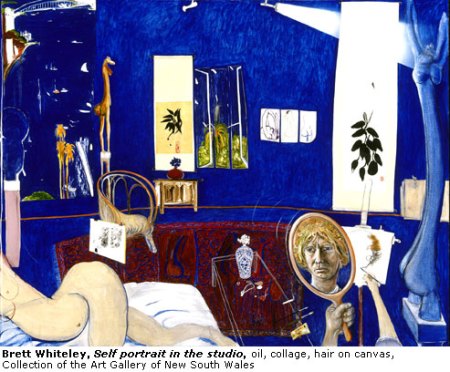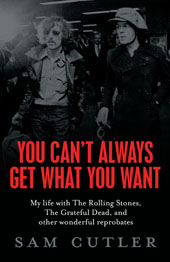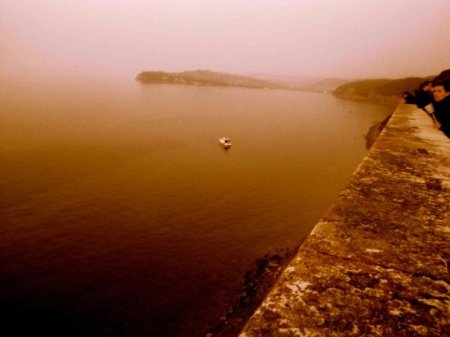This week, I’m thrilled to be dissecting a phenomenon known as ‘collective’ or ‘malignant group narcissism’. Let me put your mind at rest. It’s not a direct criticism of you personally, dear reader, nor is it even a uniquely Australian trait, neither is it even exclusive to the so-called western world. In fact, it is a feature of many societies around the globe.
So what is collective narcissism?
Some socialist thinkers might argue that by any other name, it would implicitly be framed as ‘capitalism’ but I realise that it is disingenuous to even bandy that word about because by implication and because of human nature, capitalism is as much a part of our day-to-day life as death and taxes. Which is not to say that I think it’s ideal. It’s not. Bear with me.
Collective narcissism was first observed in royalty and the ‘wealthy classes’ and came to prominence as an identifiable syndrome in the late twentieth century. In their book, Personality Disorders in Modern Life, authors Theodore Millon and Roger Davis pinpoint it as a signpost toward “a society that stresses individualism and self-gratification at the expense of community”. The pair then go on, not only to give rise to a new theoretical ‘arrogance’, but also as far as to name that society as “the United States”.
If there is any such uniting trend, it is only that such a pathology exists all over the world and Americans are no more or less prone to it than Kenyan farmers, Dutch potters or Irish builders. In other words, it’s completely useless to try and categorise it as a solely European idea, even for someone like me who is fascinated by social psychology and therefore interested in labels, generalisations and easy categorisation.
It’s an intriguing substrate of collective behaviour, though some would argue that there’s nothing ‘sub’ about it; that in fact it is a primary driver of human interaction. Under such conditions, it’s not completely surprising to note that this group ‘mentality’ also perceives a threat from ‘out-groups’ (a vague fringe collective, golem, those who don’t ‘belong’, boat people even) and tends to favour the use of military force and is also associated with right-wing politics and patriotism. So while it’s not exactly inaccurate to imagine that it’s an “American” problem, it applies equally to Australia, or the United Kingdom, or France.
Even so, it is still an ambivalent way of looking at the world, particularly if the group esteem is relatively low in a public sense. After all, Australians pride themselves on having a certain sense of place in the modern world. We’re proud of our way of life, our emphasis on the ‘fair go’ and ‘mateship’ – as hideous as that word is in what it has come to represent. More importantly, the narcissistic group impulse is also notable for its lack of humour; it is both irony-deficient and sarcasm-proof.
The rise of Disinformation is obviously imperative to the growth of such an ‘unconscious movement’ such as the relatively recent rise of the Tea Party political ‘group’ in the United States – it’s probably too soon to call it a political party, though it soon will be – as it is perhaps the most interesting emergence of ‘collective narcissism’ and will put the very idea to the test. This grassroots ignorance movement has been given greater momentum by conservative media groups and some so-called ‘disgruntled ex-Republicans’ who have embarked on a campaign to actively mislead its followers, over non-issues like President Obama’s birth certificate, or his supposed ‘socialism’ (clearly they’ve confused a commitment to the socialisation of health care with Marxist theory). These liars – there can be no other word for them – are misleading people in order to sway their vote. They’re not presenting facts as a good reason to vote for them, they’re using outright lies and fear tactics, sweetened by their supposed ‘rebel’ and break-away status from the two major US political parties.
What is the common thread here? It is not a lack of education that drives group esteem to somewhat exaggerated paranoia about some unknown ‘other’; it is instead a cultural willingness to accept what politicians, leaders and thinkers say as being trustworthy.
Anyone with even half a brain would know that this willingness, though not an absolute indicator of lack of intelligence, shows an alarming trend toward intellectual laziness, given the way American and Australian politicians have used falsehoods during election campaigns in the last fifteen years.
The first symptom of collective narcissism is also a boon to politicians and spin doctors. It is ‘active’ passivity, a deliberate wish to suspend individual judgement and analysis of complex debate – such as distinguishing between ‘illegal immigrants’ and ‘refugees’ – in favour of “allowing” our elected leaders to control access to information that could be used in informed debate. Let’s face it – informed debate does not suit Australian politics; it’s too all-encompassing and sound to reason for ourselves by researching a matter that is either too boring or complicated to even be given reasonable consideration by politicians. So why should Joe Public bother getting their facts straight when our political representatives can’t even be bothered to research an issue properly and come up with a coherent policy when flat-out lies and cant will do the electorate nicely?
It’s because we don’t want to interrupt the relatively calm arc of our lives. People shrug off the onerous task of thinking for themselves because we expect our elected representatives to do our thinking on political matters for ‘us’ in the same way that we expect our mechanics to maintain our cars – because that’s what we pay them for, right? That’s the collective way.
To which the answer is, no. We do not ‘pay’ politicians to think for us, we merely ‘elect’ them to act on our behalf (don’t get me started on the fact that it is usually the undemocratic decision of a few power-broking members of a political party that pre-selects candidates for state and federal politics from a shallow pool of apparatchiks). They are like lawyers and solicitors; they are ‘advocates’, they stand in our place, but like a lawyer, a politician theoretically cannot present a case unless they have a brief from a client, i.e. the electorate. We don’t give our politicians clear information about what we want them to do, because we’re too busy getting on with living. This is a generalisation of course, but bear with me.
Throw narcissism into the equation and nothing is really so surprising, apart from the sheer numbers of otherwise intelligent individuals who when participating in this mass identification together become impressively lazy thinkers.
To boil it down, collective narcissism is nothing more than a delusional belief held by the many as to their superiority.
When we participate in this game, we lose perspective and compassion, and become indifferent and hostile to ‘outsiders’ and people we perceive as a threat to our existence. How does this happen? Easy – just let yourself be coddled by Labor or Liberal politicians, or at least someone with an ideology that has been set in place by a relatively inflexible party structure.
Don’t forget: many MPs can’t be bothered thinking for you (not that they should have to), they’d rather just take your lack of interest in the whole process as a proxy vote for them to fire cheap shots around parliament during question time than stand up for an issue, which takes time and is widely perceived as obstructive to the process. At least, most of them choose not to come out in support of ‘unpopular’ issues. There are plenty of principled people in politics, they’re just having their souls sucked out of them slowly.
The other important factor to remember is that just because a lot of people feel strongly about a hot button issue, like immigration or climate change, does not make their viewpoints and opinions right. The dog whistlers who are currently running the country are simply wetting their fingers and trying to judge the prevailing wind, at the cost of actual leadership and policymaking. There is no task quite as Sisyphean as trying to please the majority, especially when the majority have been so actively misled to begin with. Like what? How’s this? “Let’s not have a policy, let’s have a Citizen’s Assembly!” Or to be less kind, “Let’s not take a position on immigration, let’s just pander to the opinions of people who haven’t even bothered to look at the statistics or make a judgement that’s NOT based on the fear-mongering of the two major parties!”
It’s not a pretty picture. Collective narcissism: Not everyone is guilty of it, but we all love someone who is.





